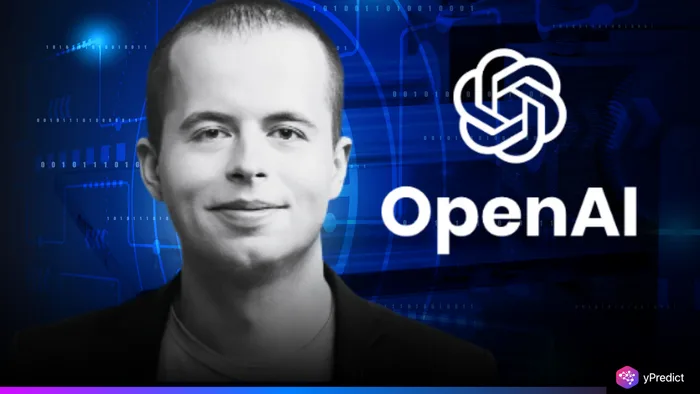
AI is evolving faster than ever, and some of its leaders are beginning to worry. Jakub Pachocki, OpenAI’s chief scientist, recently voiced deep concerns over a new trend, automated AI research teams guided by only a few individuals. This setup, according to him, holds the potential to generate incredible results but also concentrates immense power in the hands of very few. That imbalance, he argues, could threaten the broader integrity and direction of AI progress.
In a world where GPU-powered systems can run experiments, write code, evaluate results, and generate new ideas without human effort, the concept of AI research automation is no longer futuristic. It’s already happening. But Pachocki’s concern isn’t just about speed or results, it’s about control. Who decides what this automated system works on? Who governs its goals? When just a handful of people steer such a powerful setup, the risk of misuse or unintended consequences becomes dangerously real.
How Automated AI Research Teams Actually Work
AI research automation employs large language models in combination with agents and coding assistants to mimic the work of human investigators. The systems operate with minimal human oversight to develop testing procedures while verifying propositions and analyzing findings before repeating the process. The combination of advanced GPU clusters with these agents produces efficiency gains which surpass human team capabilities.
But this efficiency comes with a catch. The decision-making moves upstream to a select few, those who build, configure, and direct the system. As the human labor behind research decreases, so does the diversity of thought and scrutiny. This shift in control is what Pachocki warns about: a narrowing circle of influence over a field that affects everyone.
Why Centralized AI Control Could Be Dangerous
Concentrating AI research automation in the hands of a few organizations or individuals creates several risks. First, it increases the chances of unethical experimentation. With fewer checks and balances, biased or dangerous models could slip through unnoticed. Second, it allows these select groups to shape global AI progress based on their own incentives, not necessarily public benefit.
Jakub Pachocki’s warning stems from a fear of what he calls “unprecedented power.” If one automated AI research team achieves key breakthroughs, others may struggle to catch up, creating an AI arms race. That race could lead to secretive practices, safety shortcuts, and geopolitical tensions. In short, centralized AI control threatens transparency, competition, and public trust.
The Tools Behind This AI Shift Are Already Here
The organizations OpenAI, Google DeepMind and Anthropic dedicate substantial financial resources to developing tools that could establish completely automated AI research teams. Self-improving agents together with autonomous coding bots and data-efficient training pipelines form part of these tools. These technologies combined with access to massive GPU infrastructure, diminish the requirements for human supervision.
The developments show promise yet introduce fresh obligations that need to be addressed. Which authority supervises the choices that these automated systems make? Research requires ethical standards and diversity and human value alignment which must be guaranteed. Automated research systems will likely evolve into systems which operate outside public accountability when there is insufficient oversight.
What Happens When AI Controls Its Own Progress?
Pachocki’s comments point to a critical question: What happens when AI can improve itself without human guidance? This scenario, once the domain of science fiction, is now plausible. With rapid cycles of model training, evaluation, and iteration, automated research teams could soon outperform their human counterparts entirely.
In this case, the role of humans shrinks to that of supervisors, or worse, mere observers. AI becomes both the creator and executor of its own development path. The very idea of collective progress, grounded in peer review and debate, could vanish. That loss would mark a turning point in how science and technology evolve.
The Need for Transparency, Oversight, and Public Dialogue
The warning from Pachocki should ignite a worldwide discussion that extends beyond technical matters. AI research automation requires governments along with academic institutions and civil societies to develop governance frameworks. The frameworks need to establish transparency standards together with public oversight boards and ethical guidelines that regulate automated systems.
The field of AI research requires both openness and diversity together with systems that maintain accountability. The process of automation does not automatically lead to centralization. The future direction points to centralization if we fail to take purposeful action. The transformation of industries and science and power through AI demands increased participation from diverse stakeholders rather than reduced involvement.






